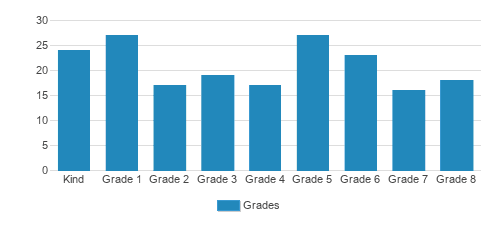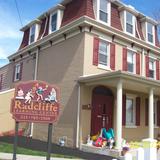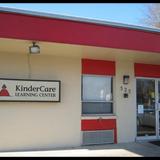St. Ann School, which began in 1920 under the leadership of Trinitarian pastor, Fr.
Isadore Jenne and the Holy Trinity Sisters under the leadership of Mother M.
Teresa of Jesus. The original school was in the convent building, and each year another grade was added to the school.
The new convent was formally dedicated on November 21, 1965, and in August, 1967, the addition to the school was begun which consisted of three floors including an auditorium/gymnasium, kitchen, and bathrooms.
The second floor had two classrooms, principal's office and nurses area and library.
The third floor included three new classrooms and a bathroom.
Both the pastor and people were very proud of the school and all its achievements.
The school today continues to be under the direction of Holy Trinity Sisters and dedicated lay staff.
The school is accredited by The Middle States Accrediting agency for more than ten years, and under the leadership of Principal, Sr.
Mary Donald and Pastor, Fr. James, the school continues to expand and develop new programs.
It was in February, 2000 that a new state-of-the-art Technology Center opened, and every child has access to his/her own computer while in the Center.
The curriculum continues to provide sound basic education which all of the students will need to make appropriate academic choices for high school, and yet the smaller size of the classrooms provides the teacher and student with daily personal contact.
School Overview
Religious Affiliation
Grades Offered
Grades Kindergarten-8
Student Body
Total Students
188 students
Student Body Type
Co-ed
% Students of Color
21%
State avg.: 27%
Students by Grade

Academics and Faculty
Total Classroom Teachers
9 teachers
Student : Teacher Ratio
21:1
National avg.: 13:1
Tuition and Acceptance Rate
Admission Deadline
None / Rolling
School Notes
- St. Ann School provides a Catholic Education for the parishioners of St. Ann and the surrounding area. Catholic Education is the backbone of the church, the family, and the individual from which the entire community benefits. St. Ann Catholic School is an extension of the education that begins at home. By the time a child enters school, he/she is not beginning his/her education but continuing it, and needs the help of his/her parent/s. The parent/s' attitude toward the school and the teacher is most important and will be reflected in the attitude of the child. St. Ann School is committed to proclaiming the message of the Gospel through active participation of the faculty, staff, and students in planning and participating in religious experiences. Our academic program allows the student to grow in a balance of spiritual, intellectual, social, and physical experiences appropriate to their age and grade.
Source: Verified school update
Frequently Asked Questions
When is the application deadline for St. Ann School?
The application deadline for St. Ann School is rolling (applications are reviewed as they are received year-round).
Recent Articles

A Parent's Guide To Understanding High School Teaching Methods
This comprehensive guide helps parents navigate the various teaching methods used in today's high school classrooms. By understanding these approaches, you'll be better equipped to support your teen's learning journey, communicate effectively with teachers, and create a complementary learning environment at home.

February 08, 2025
Social Emotional Learning: Education's Hidden SymphonyA musician's perspective on Social Emotional Learning reveals how this educational framework orchestrates success through five essential emotional competencies.

January 24, 2025
A Roadmap For Starting A Private SchoolUse this roadmap as a set of talking points with your trusted mentors and professionals to start the private school of your dreams. You're not alone. Over the years, hundreds of folks like you have had the same dream. From Quintilian to Maria Montessori to Lucy Madeira Wing, visionary educators have established schools to teach according to their beliefs and methodologies.

















